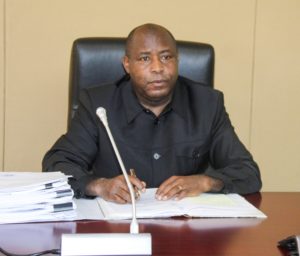In lifting the sanctions against the British Broadcasting Corporation, the National Communication Council of Burundi gave two main reasons. The recommendation of the President of the Republic and the fact that the BBC radio agreed to apply for a new licence. But in reality, the real reason is the implementation of the roadmap concluded between the government and the European Union.
The strengthening of media freedom is one of the points that the European Union continues to raise in the framework of the political dialogue with Burundi. It is in this context that the CNC has authorized the resumption of BBC radio activities on Burundian soil. The Burundian authorities are also encouraging the cascade of new media approvals to “prove the evolution of press freedom”. In this sector, the Burundian authorities still do not see how to “make peace” with the media that have been burnt down and banned on the national territory. According to our sources, the CNDD-FDD regime intends to lift the arrest warrants issued against the heads and some journalists of these media and then demand their repatriation under other media’s names. But this is a complicated process and not a priority for the moment, our sources say.
Priorities by June
By June, the Burundian authorities should present tangible results on the implementation of the roadmap to their European partners. This is why, in this race against time, another group of exiled members of the political opposition and civil society is expected to repatriate soon. According to our sources, they will come mainly from Brussels, Kampala and Kigali. So far, these returning politicians and civil society members have one thing in common. They have officially challenged the third term of President Pierre Nkurunziza but have unofficially maintained good relations with the CNDD-FDD.
The ‘2015 coup plotters’ file
The regime also intends to score points by releasing the “putchists of 2015” and other political prisoners. The release of political prisoners is among the points that the European Union continues to negotiate. According to our sources, the issue of the “putschists” was discussed in the backstage area of the presidential party last year, in 2021, but there was no consensus. After the fire that killed detainees and ravaged a large part of the central prison in Gitega, President Evariste Ndayishimiye sent an emissary to explain to the ‘coup plotters’ that they were not at all targeted, contrary to ‘what was being said in the street’, our sources tell us.
Currently, the Burundian authorities are telling their European partners that everything is negotiable but refuse to allow their donors to impose on them the chronology of treatment of files, according to our sources.

